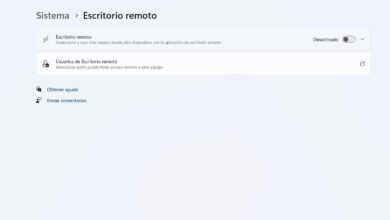
We can meet many vulnerabilities that can put programs and systems that we use on a day-to-day basis at risk. Hackers could exploit those flaws and steal passwords, personal data or simply make something not work right. In this article we echo a zero-day vulnerability that affects a popular vpn. This bug has caused users’ IP addresses to be leaked, which can put them at risk while browsing.
Is about AtlasVPN, a fairly popular program that has many users. They have detected a bug that causes the IP to leak. For this to happen, the user simply has to enter a web page. Something as simple as visiting a website can expose the real IP you are trying to hide through this software.
Atlas VPN filters the IP
It specifically affects the Linux client. Specifically, it is present in the latest version, 1.0.3. They have conducted a proof of concept where a researcher describes how the Atlas VPN Linux clientit has an API endpoint that listens on localhost (127.0.0.1) through port 8076.
This API allows you to perform different actions, such as disconnecting the VPN session. The problem is that the API doesn’t do any authentication. This means that, through this exploit that they have created, they can exploit the Atlas VPN Linux API and reveal the real IP addresses of the users, which is a problem.
What this proof of concept or exploit does is create a hidden form than javascript automatically sends to connect to an endpoint URL, http://127.0.0.1:8076/connection/stop. By accessing this endpoint, any active Atlas VPN session ends. What the exploit does is connect to the URL api.ipify.org and record the real IP address, once the session has been disconnected.
What happens when the IP is leaked? An attacker could obtain the real location of the device, which affects privacy. I might know where you are, even roughly. If you want to hide that information, that’s a problem.
How to avoid the problem
At the moment, the solution seems to be coming in a future patch. There is no update, as of this writing, to immediately fix the problem. However, it is to be hoped that it will not take too long to arrive. From Atlas VPN they have indicated that they are working to reach a solution as soon as possible.
As we always say, our advice is that you have updated whatever program or system you use. Vulnerabilities of this type may appear, which will affect security and privacy. Carrying out an action as simple as updating the software can save you from having many problems. It is also key to avoid VPN connection problems.
In short, as you can see if you use Atlas VPN, specifically the version for Linux, you could have problems hiding your real IP address. It is important that you update as soon as there is a new version. If you want to reduce the risk as much as possible, you can always choose to use other VPNs like Surfshark or NordVPN.



